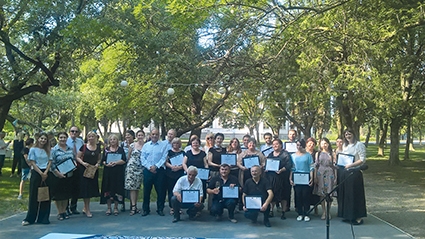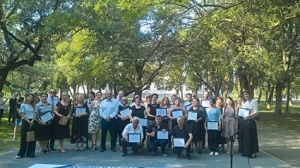TDI, EBRD Close MSME Development Program in Mukhrani
In the framework of the EU4Business initiative of the European Union, in late 2017, the European Bank for Reconstruction and Development (EBRD) initiated a pilot program aiming at promoting micro, small and medium enterprise development in agritourism in the historical and central Georgian settlement of Mukhrani. Tourism Development International (TDI), based in Ireland and running numerous international projects, conducted a comprehensive Agritourism Capacity Building Program for local businesses, residents and stakeholders in order to improve backward linkages between tourism and primary agriculture in Mukhrani.
20 local residents participated in the program, working on a range of micro- enterprises that will greatly strengthen the tourism fabric of Mukhrani. These include guesthouses, restaurants, winery tours, traditional crafts and rural activities.
Last week a round-up workshop was held at Chateau Mukhrani with the aim of highlighting Mukhrani’s potential as a tourism destination, giving an insight into Mukhrani agritourism MSME development plans and presenting recommendations to provide ‘incubator’ support to agritourism MSMEs.

At the event, the EBRD and Foundation for the Economic Development of Mukhrani (FREM) also presented Certification Awards to all participants who had successfully completed the Agritourism Program.
The event was opened by Governor Levan Zautashvili, who spoke about the significance of the project for the community and country and thanked the organizers and sponsors. “We are very grateful for the inclusive program that enabled Mukhrani to contribute to the ongoing works in the region to boost our tourism potential,” he said. “The Mskheta-Mtianeti region has numerous attractions and Mukhrani has a big role to play. We have infrastructural plans for Mukhrani town center, the roll out of which takes time, but we are determined and are actively working to produce a quality product and services.”
“I’m truly excited to see this cross of tourism and agriculture, something the EBRD itself is enthusiastic about,” said Bruno Balvanera, EBRD Director for the Caucasus, Moldova and Belarus. “Today we see the results of the first concrete agritourism project, not only in Georgia but throughout the 38 countries the EBRD works with. Georgia has a lot to offer tourists. We know that Georgia is a country where the opportunities for minorities have been limited and we want such people- particularly the young and women - to have the chance to take a grant and develop their businesses. Tourism in Georgia is an area ripe for development. The EBRD aims to bring all of its 38 partner countries self-sustainable services, and to bring the villagers of Mukhrani economic independence. I thank those of you who made this first successful project possible and look forward to seeing the spread of such MSME practice throughout the rest of the country.”
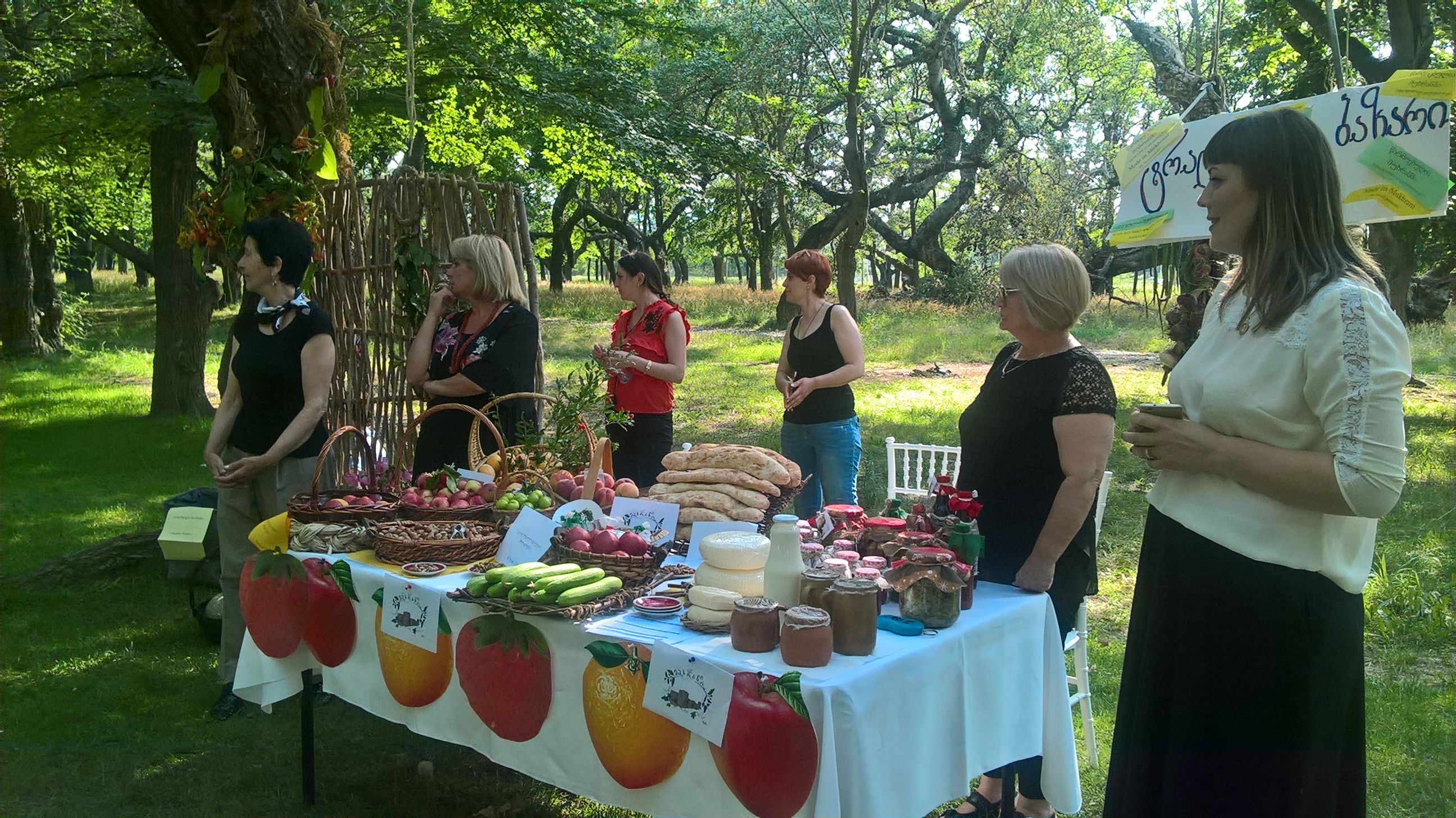
Mukhrani was singled out as a cultural heritage asset of Georgia, not least for its tradition of winemaking. Alongside the Chateau Mukhrani vineyard, restaurant and resort, the village boasts ruins of a palace, several churches and a fortress. In Mukhrani, there is a desperate need for capacity building in order to facilitate small and micro sector development. This was carried out in a prgram headed by TDI, via training workshops, excursions and visits from guest professionals in various fields.
“A huge growth in tourism has been contributing significantly to GDP and employment growth, said Peter Mac Nulty, TDI Managing Director. “But even though the numbers are up, tourism revenue is lower than it is in many other countries due to skills deficiencies, a lack of understanding of dynamics and low investment in facilities. Visitors need things to do and places to see. In Mukhrani, we have been working to unlock the tourism potential of the village. TDI was appointed to develop a tourism plan; to set out a road map resulting in financial benefits and social transformation. This plan identified heritage and food as the most outstanding assets of Mukhrani, so we set out with the locals to create a combination of history, culture, good food and hospitality.”
The project began by identifying needs. While the Chateau complex itself was a key facility providing employment for the local community, outside its walls, the village was at “Level 0” in terms of facility development, conservation awareness and agritourism capacity.
“The overarching aim of project was to assist the development of MSMEs in agritourism, to build the capacity of local residents to create their own businesses, with an emphasis on women and youth, and to improve linkages between tourism and agriculture,” Mac Nulty told us. “The needs of local business owners were assessed, and capacity-building courses designed for MSMEs with a focus on agritourism, food safety and production, and the overall development of Mukhrani village.
The training program consisted of 12 modules. Business advisory services gave support to each beneficiary, enabling them to come up with business plans. Six demonstration projects were then prepared, and these were on display at the end of the closing event in the garden of the Chateau. A study tour was also organized to Kakheti region to demonstrate to beneficiaries best-practices in agritourism from other areas of Georgia and abroad.
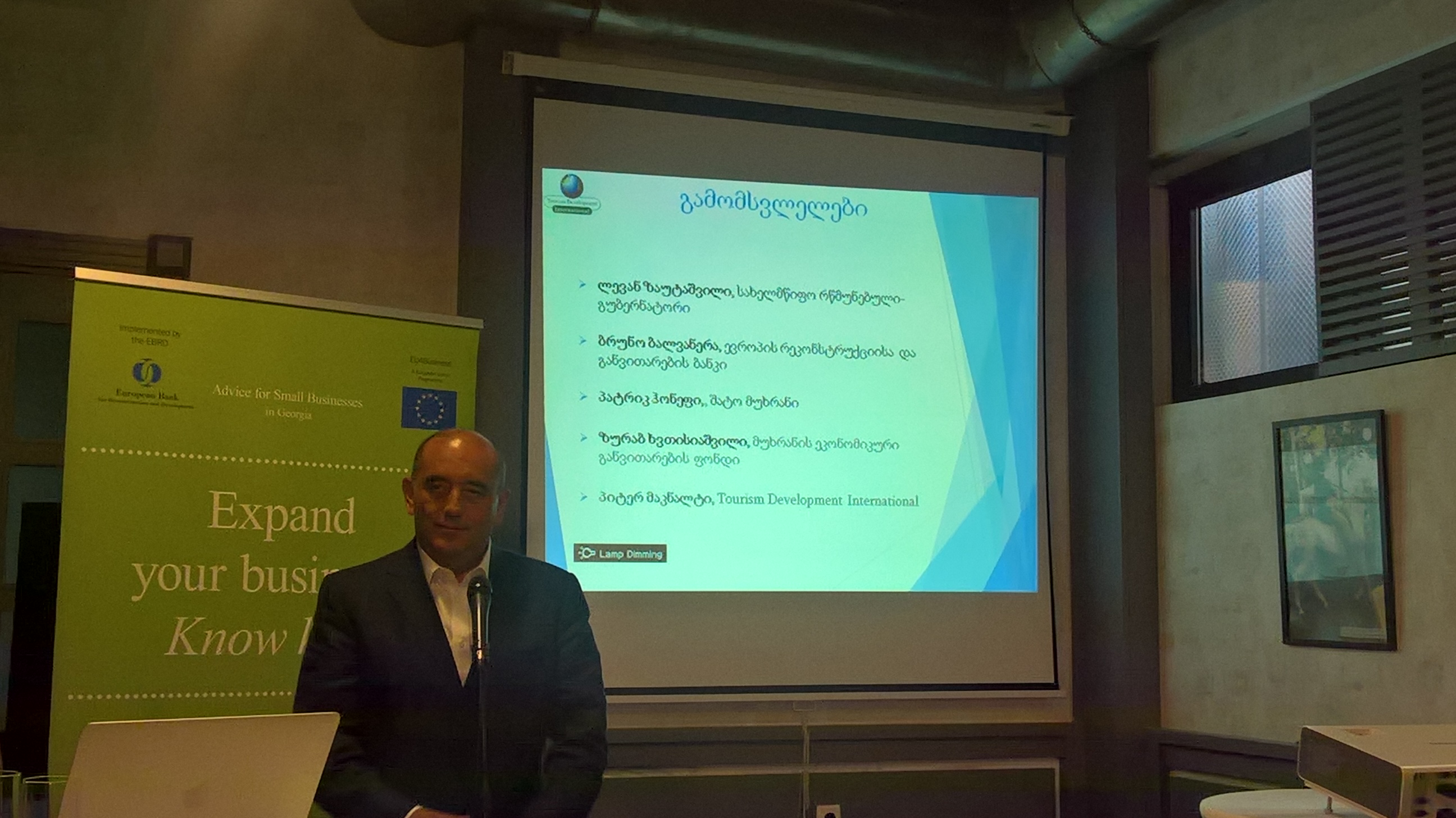
Bruno Balvanera, EBRD Director for the Caucasus, Moldova and Belarus
“So, what were the results? Increased awareness of Mukhrani tourism potential throughout the local community and beyond and 18 new agritourism enterprises in the pipeline, including eight guest houses, four wineries/wine tours, two farm visits and related activities, two craftshops and two cafes,” Mac Nulty said. “Community cooperation is an essential prerequisite for sustainable agritourism,” he noted. “We had 20 beneficiaries working on their own business plans, then being split into three separate groups to work on demo projects which laid the foundation for future community cooperation.”
Sopio Kubiashvili, Director of the local school, chicken-farm owner and future guesthouse manager, thanked the organizers and spoke enthusiastically of the success of the program.
“You gave us pride and hope and the ability to believe in ourselves- a fundamental change for us. Mukhrani is well-known for its wine, but I pledge that agritourism will soon become equally as well known, with all of the community taking part,” she said.
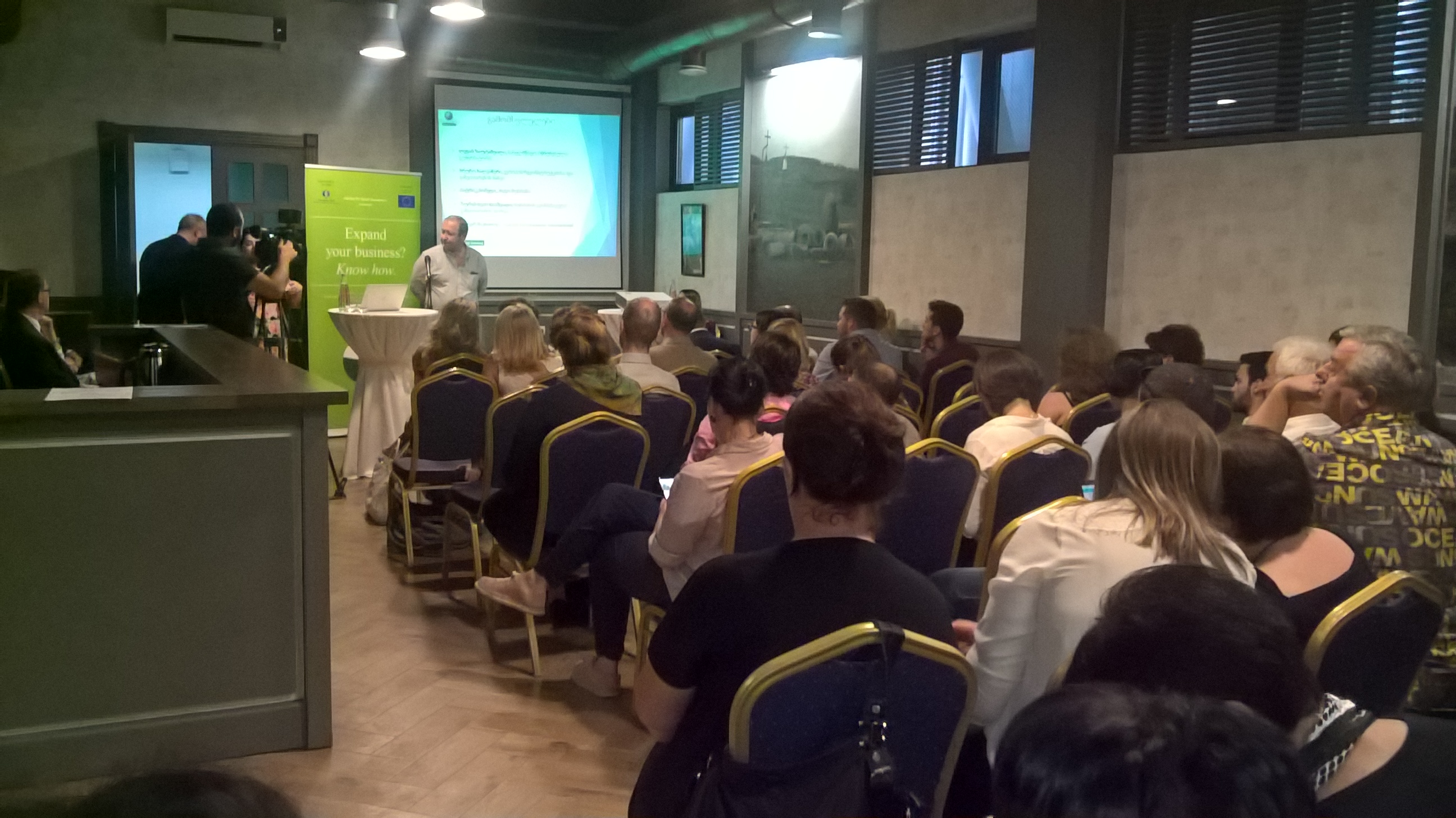
“What this program has done is provide an essential private sector dynamic to complement the public sector support,” he said, going on to discuss TDI’s recommendations for how the Georgian government and EBRI might elaborate on the project to ensure its continued success.
“An incubator program is top of our list of recommendations,” Mac Nulty told attendees at the project closing event. “A two-year program is needed to support the community in generic business activities; assisting beneficiaries to liaise with funding agencies; to provide support for them in marketing and branding in terms of creating a quality label for Mukhrani and to give conserva-care training and training in IT. Specialist business support is needed for architecture, design and operation of guesthouses, food health and safety, craft product design, and wine tasting and tours.”
He noted the vast amount of work still needed in the implementation of the tourism development plan for Mukhrani village and suggested an agritourism MSME financing program, tourism and visitor facility development, and establishment of an agritourism network, building on the cooperation already begun.
“A capacity-building program would be good for senior officials at local government and municipality level. Awareness-building is essential, and a youth program would be highly beneficial to the community. Capacity-building and technical support should also be given to FREM, which, in our view, is ideally positioned to oversee implementation of the agritourism development plan but which will need assistance and support to help it in that task.”
He also highlighted the need for assessment of existing channels for financing in Georgia.
“An agritourism MSME financing program should be designed and developed, under which small matching grants would be provided to MSMEs in target rural areas.”
Both TDI and EBRD expect the agritourism capacity-building program, as demonstrated in Mukhrani, to be extended to other regions of Georgia and, indeed, to the 37 other EBRD portfolio countries.
TDI recommended EBRD establish a research program into untapped agritourism potential in Georgia and find partners within the regions, prioritizing regions ready to cooperate with them. It is then advised to implement an agritourism capacity-building program over a 10-year timeframe.
“TDI’s 30 years’ experience has shown that tradition can be combined with new to the benefit of communities who can together use their history, culture and tourism to benefit the entire community,” Mac Nulty concluded. “This is a fully tested program ready for wider implementation. We have faith in it and so do our beneficiaries.”
By Katie Ruth Davies
